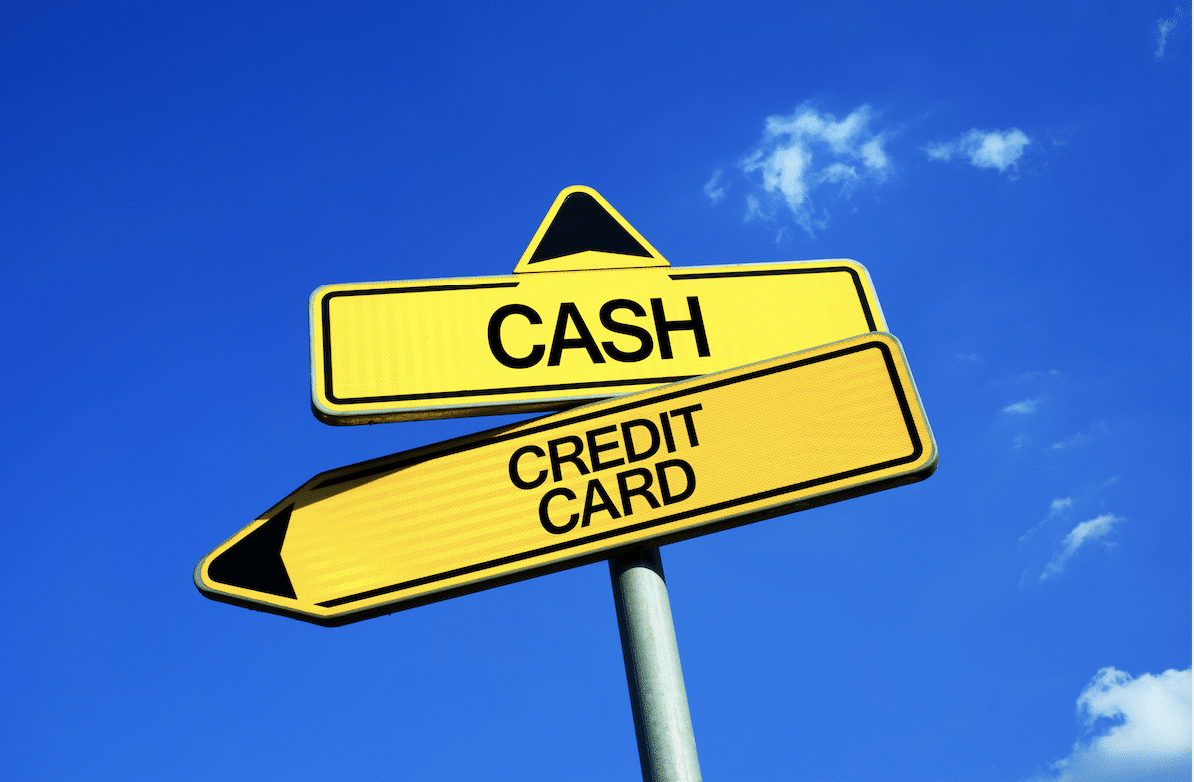Summary
- Should you rely on cash or credit during the pandemic? Financial experts are not all aligned.
- Learn more about the pros and cons of relying on cash vs credit to help you decide what’s best for you.
We’re all familiar with the question from the cashier at the supermarket: “Will that be cash or credit?”
Normally, it’s a no-brainer. You likely already have your debit or credit card (or mobile device with the desired card) poised and ready to scan. However, with the current financial landscape the pandemic has caused, this question now may carry more weight. If you’re tight on finances, relying on a reduced income, or concerned you may lose your job, which form of payment is best to use now to help preserve your finances later?
There’s no straight answer here, and not all financial experts are even aligned at this time. Here are some of the pros and cons of both to help you decide what’s best for you.
You choose to pay with cash or debit now.
The Pros:
- Purchasing items with cash or a debit card can help prevent you from overspending since you can only spend what you have in your wallet at the time.
- It will also help prevent you from going deeper into debt, which means it may be easier for you to recover or bounce back once your income is steady again.
- You can rely on your lines of credit for emergencies.
The Cons:
- In most cases, landlords and lenders require cash to pay your rent, mortgage, and other expenses. If you deplete your cash too quickly, you may not be able to pay your bills.
- When using cash, there’s also less of a paper trail of funds you’ve spent. This can make it more difficult to track against your budget.
- Missing payments or not paying the minimum on bills can also impact your credit score.
What the Experts Say:
- Personal finance expert Rachel Cruze suggests consumers use debit cards. Cruze says that using a debit card instead of a credit card will prevent you from going into debt. She says that over half of Americans don’t pay off their credit cards each month and end up paying the interest.
- Chris Hogan, another financial expert, agrees and says although “debt accumulation happens little by little, it can really creep up.”
You choose to pay with credit now.
The Pros:
- It may sound counterintuitive, but paying with credit now allows you to put more cash in savings. It also means that you can save your cash for expenses that don’t allow you to pay with credit, like rent or loan payments.
- If you can’t afford to pay for all of your expenses that month, putting them on a credit card allows you to pay just the minimum balance until you can get back on your feet.
- If you have a credit card that offers reward programs, this is another way to really rack up the points.
The Cons:
- You may rack up more debt. If you aren’t in a position to pay your entire balance each month, you’ll likely end up paying more interest and increasing your credit card balance.
- A higher credit utilization can also impact your credit score. However, this is much easier to correct when it comes to your credit score than late or missed payments. As soon as you start to chip away at your debt, your score will likely start to bounce back.
- Lenders and banks reserve the right to reduce your credit limit. So if you are relying on a credit card balance, this may prevent you from using this form of payment until you pay down your debt.
What the Experts Say:
- Personal financial expert Suze Orman recommends using your credit card in order to save as much cash as possible, especially since we don’t know how long it’s going to take for the economy to start growing. In speaking with Business Insider, Orman believes, at this time, it’s fine to pay the minimum that is due on your card. She says it’s better to put the cash into a savings account.
- Consumer finance analyst Beverly Harzog told CNBC: “If you’ve got credit cards, this is one of the few times I recommend using them as often as you can to maintain your cash reserves. This crisis will pass, and when it does, we’re all going to be busy getting our financial lives back on track. But for now, it’s more about financial survival.”
- Financial planner Kathy Hauer said in an interview with NPR: “Defer as many payments as possible and worry about it later.” She also stated that she never gave this advice pre-pandemic.
The bottom line.
Whether you are using cash more often or your credit card more frequently, watch your expenses carefully and keep track of your budget and what you’re spending. It’s also important to keep an eye on your credit score, since this can help be a gateway to additional lines of credit when you need it.
This article is for informational purposes only and should not be relied on as financial advice.




















